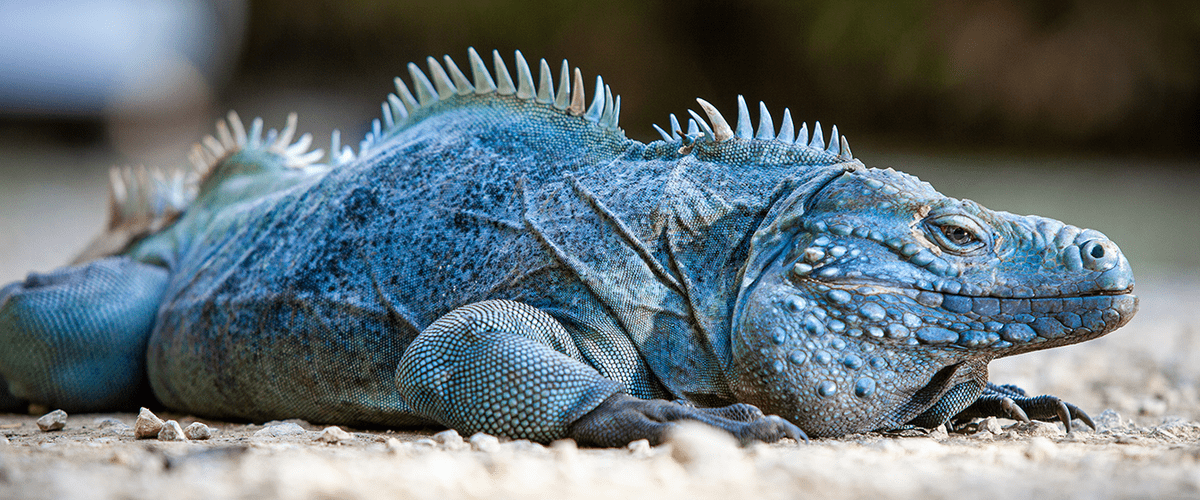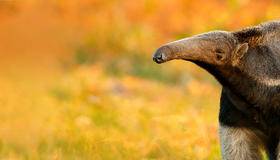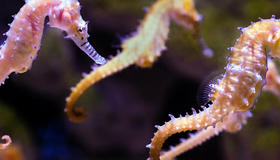
October 20, 2022 – Although many people might shudder when they think of reptiles, these amazing animals are vital to maintaining biodiversity and balanced ecosystems around the world. They play crucial roles as predator, prey, or both, in many diverse habitats, from deserts to oceans to forests. Some species keep destructive insects and rodents in check, others are pollinators, while others are efficient scavengers. What they have in common is all are cold-blooded (poikilothermic or ectothermic), most lay eggs (with a few exceptions), and they are known for their scaly appearance reminiscent of ancient dinosaurs.
Over the course of two decades, Morris Animal Foundation has invested nearly $2.2 million in more than 80 reptile health studies. Our funding helped researchers investigate serious health challenges in lizards, tortoises, turtles, snakes, alligators and crocodiles.
Here’s a snapshot of how we are helping reptiles thrive and survive around the world.
Snakes
One of our first funded reptile studies in the 1990s looked at a highly infectious stomach and small intestinal parasitic disease, cryptosporidiosis, in snakes. Our researchers developed early protocols for prevention of pathogen spread to other animals, therapeutic treatments and diagnostic tools. The study provided much-needed care resources for veterinarians and reptile owners to help prevent and manage the disease in infected snakes when few resources were available.
Another key area of Foundation-funded research has focused on a neurological disease called inclusion body disease (IBD) that affects boid snakes, including captive boas and pythons. Our funded researchers developed more accurate IBD testing that could be used to help keep boid snakes disease-free. Conservation managers also use these new tools to screen snakes intended for release as part of reintroduction programs.
In ongoing research, investigators are studying an emerging disease called ophidiomycosis, a fungal skin infection in free-ranging snakes living in the eastern United States. Our researchers are working to better understand the prevalence of and factors contributing to this deadly disease and hope to use their findings to help inform snake disease and conservation strategies.
Turtles
The Foundation supports health studies for both sea and freshwater turtles, especially species listed as vulnerable or endangered.
For sea turtles, a key focus area of our research is improving care and rehabilitation of rescued animals. One successful study showed that an intravenous solution used for drug overdoses in people helped sea turtles recover quickly from toxic red tide exposure. Red tides are harmful blooms of algae that discolor coastal waters and occur almost annually in the Gulf of Mexico. They produce potent neurotoxins, called brevetoxins, that affect the nervous system in marine animals. This leads to mass strandings, and even deaths, among many species, including sea turtles.
Another serious health issue for sea turtles is cold-stunning stranding; when ocean temperatures drop suddenly, turtles have difficulty regulating their temperature and become weak and inactive. Our funded researchers improved transport methods to reduce stress of stranded animals from the beach to rehabilitation facilities and back to release. In ongoing studies, researchers are looking at how hormones relate to physical health of rescued turtles. Overall, the goal of these studies is to help more stranded sea turtles recover so they can return to the wild.
Turtle diseases also are a top research priority for the Foundation. One devastating disease in sea turtles is fibropapillomatosis, characterized by wart-like tumors on the skin, eyes, mouth and other organs. These tumors often expand to the point at which they seriously compromise vision, feeding and movement of turtles. Our funded researchers helped characterize the disease and identified a herpesvirus associated with tumor growth.
For freshwater turtles, our funded researchers recently identified a fungus responsible for an emerging turtle shell disease and a way to rapidly detect infections. Researchers already are using these findings to aid current conservation and reintroduction efforts of endangered western pond turtles and for improving health of turtles in managed care.
In another ongoing study, researchers are finding solutions for crab trap drownings of terrapins that live in slightly salty, brackish coastal waters – not quite freshwater, not quite ocean. Blue crab fisheries operate in tidal wetlands and estuaries along the Atlantic and Gulf coasts of the United States. Those same regions are home to the diamondback terrapin, the only exclusively estuarine turtle in North America. Countless terrapins drown in commercial and recreational crab traps that are baited and fished daily. Researchers are designing a new crab trap that lets terrapins escape and get back to the surface for air.
Lizards
Much of our funded lizard research focuses on improving the breeding success of endangered lizards, including Grand Cayman iguanas and Chinese crocodile lizards. These types of studies are vital for species conservation and reintroduction efforts.
The Foundation also supports studies that improve the health and well-being of pet lizards, including the popular bearded dragon. Early studies helped establish guidelines for appropriate dosing of pain-relieving drugs for bearded dragons that also can benefit other lizards.
In ongoing studies, researchers are investigating if live food exposed to ultraviolet sunlight can increase vitamin D and help prevent metabolic bone disease as well as improve growth in bearded dragons. Findings could help identify a relatively cheap food source as an effective dietary supplement of vitamin D for both healthy and deficient reptilian insectivores who need the sunshine vitamin to stay healthy.
So Many Species Need Our Help
More than 8,000 reptile species share our planet. We have seen through our funded research that finding ways to keep one species healthy often has a ripple effect of helping many related species. Other reptile species that have benefited from our work include American alligators, broad-snouted caimans, green iguanas, eastern box turtles, Sulawesi tortoise, Galapagos giant tortoise, various species of chameleons and so many more.
You can make a difference for animals around the world! Please make a gift today to help reptiles everywhere thrive and survive.




